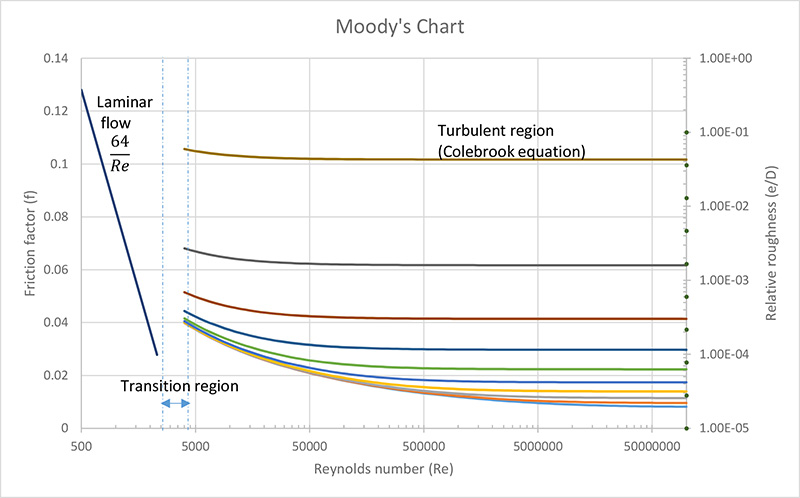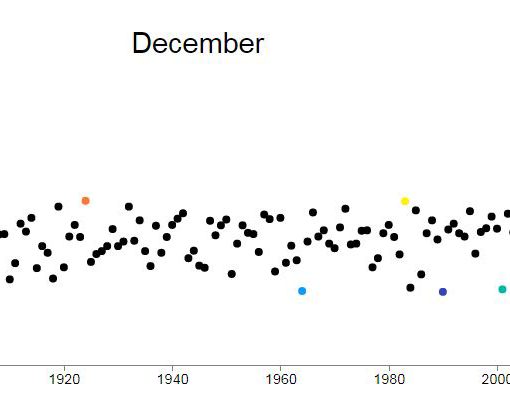Friction factor is used when calculating head loss due to friction (i.e. Darcy’s equation) in pressurized pipes or ducts.
Moody’s Friction Factor Calculator
This calculator uses an iterative procedure to solve the Colebrook equation for computing friction factor ![]() when flows are fully turbulent, i.e.
when flows are fully turbulent, i.e. ![]() :
:
![]()
where, ![]() is the friction factor,
is the friction factor, ![]() is the relative roughness, and
is the relative roughness, and ![]() is the Reynold’s number.
is the Reynold’s number.
When the flow is Laminar, i.e. ![]() , the friction factor is given by:
, the friction factor is given by:
![]()
For transition flows, i.e. ![]() , the Colebrook equation is not applicable. Therefore, a numeric solution is not provided by this tool. In such a situation, users may choose to interpolate the value of friction factor between the laminar
, the Colebrook equation is not applicable. Therefore, a numeric solution is not provided by this tool. In such a situation, users may choose to interpolate the value of friction factor between the laminar ![]() and turbulent
and turbulent ![]() values.
values.
The figure below shows the Moody diagram.

If you use this calculator for your school or academic work, I encourage you to cite this tool as follows:
Mallya, Ganeshchandra. “Moody’s Friction Factor Calculator.” Towards Open Science, 03/31/2018, www.gmallya.com/moodys-friction-factor-calculator.
The tool is released under MIT license, i.e. the tool is provided “AS IS”, without warranty of any kind. The code is made available in the GitHub repository. If you have suggestions for improvement to the tool or the write-up leave a comment and I will get back to you at the earliest.

